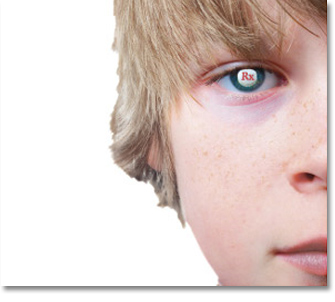by CCHR International
A recent article posted in the Wall Street Journal posed the question, “Are ADHD Medications Overprescribed?”
Is that a rhetorical question? 5 million children are currently taking ADHD drugs in the U.S. alone.
In fact the U.S. has the unfortunate distinction of being the world’s leader when it comes to child drugging—the top nation fueling the $7.2 billion-a-year ADHD drug industry.
The fact that parents are buying into the ADHD marketing campaign is in no small part due to the rampant disinformation being spread by some “leading” psychiatrists, many who have been exposed by federal lawmakers for receiving huge amounts of undisclosed Pharma funding. In the Wall Street Journal article, “Are Children Being Over Medicated” we find one of the biggest proponents of child labeling and drugging, psychiatrist Harold Koplewicz.
We’re going to address Koplewicz’s gross downplaying of internationally documented ADHD drug risks first, and the validity of ADHD as a medical condition (used to justify drugging kids) second.
In the article, Koplewicz states, “ADHD is real, it is widespread, and the stimulants commonly prescribed for it are the most effective treatment, have few side effects and are nonaddictive. “
Wrong.
Let’s start with the “nonaddictive” statement:
Fact: The U.S. Drug Enforcement Administration classifies Ritalin and ADHD drugs in the same class of highly addictive substances (Schedule ll) as cocaine, morphine and opium with the highest potential for abuse. And from the DEA report on ADHD drugs, “Parents need to understand that we are talking about very potent, addictive and abusable substances.”
Secondly, Koplewicz’s comment that ADHD drugs have “few side effects”
Wrong again.
The Facts:
- 31 drug regulatory agencies have issued warnings on ADHD drugs causing heart problems, suicide, violence, depression, mania, psychosis, hallucinations and death.
- 20 studies on ADHD side effects have been published including heart problems, depression, suicidal ideation, violence, hallucinations, mania, psychosis, homicidal ideation and death.
- There have been 14,158 patient adverse reactions on ADHD drugs reported to the US FDA between 2004 and 2011. The FDA estimates that less than 1% of all serious events are ever reported to it, so the actual numbers of patients experiencing ADHD drug side effects are substantially higher than the 14,000 reported.
As far as ADHD drugs being “effective” — also false. A long-term monitoring program involving 600 kids across the United States found ADHD drugs ineffective in the long term. Another February 2010 Australian study found “ADHD medications, at best, are unsuccessful and, at worst, harm class performance and step-up the risk of stroke and cardiovascular complications.”
Now onto the diagnosis. Koplewicz’s statement that ADHD is “real.” If he means real as in a real checklist of normal childhood behaviors which have been repackaged by psychiatrists and sold as a “disease”—then that’s the only qualification of “real” that holds up under scrutiny.
Fact: There are no blood tests, brain scans, lab tests, genetic tests, MRIs or X-rays that can prove ADHD is a disease. Period. There is no medical justification for risking kids lives with drugs documented to be extremely dangerous by international drug regulatory agencies. A National Institute of Health (NIH) statement from 1998 found “an independent diagnostic test for ADHD does not exist.” 14 years after that consensus statement was issued, there is still no medical/scientific test to prove any child has a brain malfunction called ADHD, yet 5 million children have been labeled and subjected to drugs the US DEA classifies in the same category of drugs as cocaine.
Fact: The only “test” for ADHD is a checklist of behaviors. That’s it. The ADHD checklist includes such things as:
- “runs about or climbs excessively in situations when it is not appropriate”
- “is often ‘on the go
- “acts as if driven by a motor”
- ”blurts out answers”
- “is easily distracted”
- ” loses pencils or toys”
- “often doesn’t seem to listen”
Now to be perfectly clear, kids can suffer from lead toxicity which manifests the exact same symptoms as the ADHD “checklist” but then they are suffering from lead toxicity—not “mental illness.” The same can be said of allergies, toxins, an inability to read, poor diet, but then they are suffering from allergies, toxins, an inability to read—not a “mental illness.” ADHD is a psychiatric label. It designates the child as mentally ill. It stigmatizes the child as mentally ill for life. It also prevents parents from seeking workable non-drug alternatives to handling problems of attention, mood and behavior. What the ADHD label does do effectively is fuel a $7.2 billion dollar ADHD drug industry. Because without the ADHD label, no drug prescription and no profit.
To quote psychiatrist Allen Frances, former DSM Task Force Chairman, “There are no objective tests in psychiatry-no X-ray, laboratory, or exam finding that says definitively that someone does or does not have a mental disorder.” “There is no definition of a mental disorder. It’s bull—.”
We agree.



